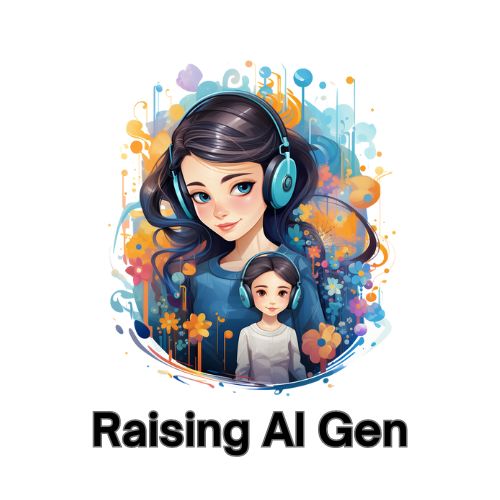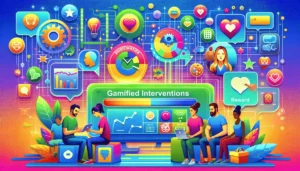Key Takeaways
Key Points Description Early Diagnosis AI tools such as Cognoa’s Canvas Dx provide a quicker pathway to diagnosing Autism, paving the way for early intervention and personalized care plans. Enhanced Communication Through apps like Proloquo2Go, individuals with Autism can find a voice and a medium to express themselves, breaking down barriers in communication. Social Skills Development Methodologies like Social Thinking and VR platforms like Floreo offer structured frameworks for improving social interactions and understanding. Cognitive Improvement EndeavorRx® offers a novel approach to cognitive training, showing promising results in improving attention in children with ADHD, which often co-occurs with Autism. Ethical Considerations The advancement of AI tools brings forth ethical considerations around data privacy and the importance of human interaction in Autism therapy.
In a world where communication is key, Autism Spectrum Disorder (ASD) can pose significant challenges, often creating barriers that can isolate individuals from the vibrant tapestry of social interactions.
Now, imagine a gateway that can unlock a realm of possibilities in overcoming these hurdles.
The magic key? AI Tools for Autism.
These sophisticated tools are not mere figments of imagination, but real, tangible technologies that are reshaping the landscape of Autism care.
As you delve deeper into this article, you’ll uncover how these AI marvels are paving the way for enhanced communication, improved social interactions, and a better understanding of Autism.
Autism Spectrum Disorder (ASD) is a developmental disorder that affects communication and behavior.
Although Autism can be diagnosed at any age, it is termed a developmental disorder because symptoms generally appear in the first two years of life. Individuals with Autism have difficulty with social interactions and communication.
They might also exhibit restricted interests and repetitive behaviors. Understanding and addressing the diverse needs of individuals with Autism demands a multidimensional approach, encompassing parents, educators, healthcare professionals, and the community at large.
The emergence of Artificial Intelligence (AI) has opened new vistas in Autism care. AI tools for Autism are designed to aid in various aspects ranging from early diagnosis to enhancing communication and social skills.
These tools employ machine learning, natural language processing, and other AI technologies to provide actionable insights, personalized interventions, and a bridge to effective communication.
The vast array of AI tools available offers a spectrum of support, addressing the multifaceted challenges individuals with Autism face in their daily lives.
From AI-powered diagnostic aids to interactive learning platforms and virtual reality therapy, the scope of technological innovation in Autism support is expansive and continually evolving.
This article endeavors to explore the profound impact of AI tools on the lives of individuals with Autism, illuminating the path towards a future where the digital realm fosters a nurturing environment for learning, growth, and connection.
Embarking on this enlightening journey unveils the promising horizon AI tools for Autism are creating, melding the essence of human empathy with the precision of technology.
Technological Innovation in Autism Support
The dawn of the digital age has ushered in a plethora of innovative tools aimed at ameliorating the challenges posed by Autism Spectrum Disorder.
These tools, steeped in the intricacies of artificial intelligence (AI), extend a lifeline to individuals with Autism, enabling them to transcend the conventional bounds of communication and social interaction.
Let’s delve into the manifold avenues through which AI tools are revolutionizing Autism support.
Diagnostic Aids
Early diagnosis of Autism is pivotal as it lays the foundation for timely intervention and personalized care plans.
One such groundbreaking tool is Cognoa’s Canvas Dx, a first-of-its-kind digital diagnostic aid authorized by the FDA.
- Canvas Dx: This AI-driven diagnostic tool significantly accelerates the timeline for Autism diagnosis. By harnessing machine learning algorithms, Canvas Dx analyzes behavioral data to provide a reliable diagnosis, thus facilitating early intervention.
Canvas Dx embodies the synergy of AI and healthcare, heralding a new era of timely and precise Autism diagnosis.
The expedited diagnosis process it enables is a beacon of hope for many families, embarking them on a journey of understanding and support at the earliest.
Speech and Communication Enhancement Tools
Communication is the linchpin of human interaction, yet it is a domain where individuals with Autism often find themselves grappling.
Here’s where AI tools like Proloquo2Go come into play.
- Proloquo2Go: A stalwart in the realm of Augmentative and Alternative Communication (AAC), Proloquo2Go is a boon for those with speech impediments. Its intuitive interface, laden with a rich vocabulary and customizable features, empowers users to articulate their thoughts, needs, and emotions seamlessly.
The transition from a world of silence to a realm of expressive communication is profoundly embodied in the experiences of Proloquo2Go users.
This AI tool doesn’t just provide a voice; it heralds a dawn of newfound confidence and interaction.
Social Interaction Aids
Social interactions are a bedrock of human existence. However, the nuances of social cues and interactions can be bewildering for individuals with Autism. Social Thinking methodology and other AI tools provide a structured approach to deciphering the social world.
- Social Thinking: This methodology, although not AI-driven, is a vital resource that complements AI tools in enhancing social interaction and understanding.
Through a blend of traditional methodologies like Social Thinking and cutting-edge AI tools, individuals with Autism can navigate the social labyrinth with greater ease and confidence.
Virtual Reality (VR) in Autism Therapy
The realm of Virtual Reality (VR) unfolds a spectrum of opportunities for social and behavioral skill development.
Platforms like Floreo leverage the immersive nature of VR to create safe, interactive environments for learning and growth.
- Floreo: This VR platform provides a plethora of scenarios designed to teach social skills, safety awareness, and manage challenging behaviors in a fun, engaging manner.
The fusion of VR and AI in platforms like Floreo epitomizes the vanguard of technological innovation in Autism therapy, offering a glimpse into the future of personalized, interactive learning experiences.
Cognitive Training and Behavioral Management
The journey towards cognitive improvement and effective behavioral management is significantly bolstered by AI tools such as EndeavorRx®.
- EndeavorRx®: From Akili Interactive, this FDA-authorized tool is a testament to the boundless potential of AI in cognitive training and behavioral management. Its captivating video game format not only engages users but also elicits tangible improvements in cognitive functions.
The realm of AI tools extends a promise of a better tomorrow for individuals with Autism, where the synergy of technology and personalized care unfolds a future replete with understanding, communication, and meaningful social interactions.
This narrative isn’t merely a tale of hope but a burgeoning reality being sculpted by the hands of technology, empathy, and relentless innovation.
Real-world Impact and Success Stories
The fusion of Artificial Intelligence (AI) with Autism care isn’t confined to theoretical frameworks or controlled environments.
It’s making palpable ripples in the real world, ushering in a renaissance of hope and tangible improvement in the lives of individuals with Autism and their families.
This section encapsulates some heartwarming success stories and the real-world impact of AI tools for Autism.
Unveiling New Communication Horizons
The journey from isolation to expressive communication is a monumental one. Tools like Proloquo2Go have been the companions of many individuals on this transformative voyage.
- Empowering Voices: Parents and educators recount how Proloquo2Go has unlocked the world of communication for non-verbal individuals, bringing joy and a sense of independence to their lives. The ability to express oneself, share thoughts, and interact with loved ones is a precious gift that this AI tool bestows.
Bridging Social Gaps
The labyrinth of social interactions becomes less daunting with the aid of methodologies like Social Thinking and VR platforms like Floreo.
- Enhanced Social Understanding: Through interactive scenarios and structured frameworks, individuals with Autism are learning to navigate social landscapes with increased confidence and understanding.
Cognitive and Behavioral Advancements
The realm of cognitive training and behavior management has been enriched by innovative AI tools like EndeavorRx®.
- Promising Progress: The success stories emanating from users of EndeavorRx® are a testament to the potential of AI in improving cognitive functions. Parents and educators recount remarkable improvements in attention and behavioral management, fostering a conducive environment for learning and development.
Early Diagnosis and Timely Interventions
Early diagnosis facilitated by tools like Canvas Dx heralds a new epoch of timely interventions and personalized care plans.
- Expedited Diagnostic Process: The significant reduction in diagnosis timeline has a ripple effect, enabling early intervention which is crucial in managing Autism effectively.
The narrative of AI for Autism is being written with each life touched, each barrier surmounted, and each milestone achieved.
The success stories are not merely anecdotes but a burgeoning testimony to the transformative power of AI.
As we venture deeper into this realm, the potential for creating a nurturing, understanding, and empowering environment for individuals with Autism and their families is boundless.
Our exploration into the fusion of AI and Autism care unveils a horizon where technology is not just a tool, but a companion in fostering a world brimming with understanding, empathy, and inclusivity.
Concerns and Ethical Considerations – AI Tools for Autism
As we traverse the promising landscapes of AI in Autism care, it’s imperative to also address the ethical quandaries and concerns that accompany this technological odyssey.
The efficacy of AI tools is a beacon of hope, yet, like any powerful tool, it necessitates a conscientious approach to ensure the welfare and privacy of individuals with Autism.
Data Privacy and Security
In an era where data is akin to currency, the sanctity of personal information is paramount.
AI tools, by their very nature, require substantial data to function optimally.
- Consent and Anonymity: Ensuring informed consent from individuals or their guardians before data collection, and safeguarding the anonymity of data are crucial steps in fostering trust and ethical use of AI tools.
- Data Encryption and Regulation Compliance: Adhering to stringent data encryption standards and compliance with healthcare data regulations like HIPAA (Health Insurance Portability and Accountability Act) are non-negotiable to ensure data security.
The Human Touch
The advent of AI tools should augment, not replace, the human interaction and personalized care that is fundamental in Autism therapy.
- Balanced Integration: A harmonious integration of AI tools with human intervention ensures a holistic approach to Autism care. The empathy, understanding, and nuanced care provided by humans are irreplaceable and should remain at the core of Autism therapy.
- Continuous Monitoring and Adaptation: AI tools are not a one-size-fits-all solution. Continuous monitoring and adaptation to individual needs by healthcare professionals are crucial to ensure the efficacy and ethical use of these tools.
Accessibility and Affordability
The beacon of AI in Autism care should shine for all, transcending socio-economic barriers.
- Cost Considerations: Making AI tools affordable and accessible to a wider demographic is essential to ensure that the benefits of these technological advancements are inclusively shared.
- Subsidies and Funding: Exploring subsidies, grants, and funding options can help alleviate the financial burden and widen the reach of these invaluable tools.
The ethical compass guiding the realm of AI for Autism is as crucial as the technological innovations themselves.
As we step into a future where AI tools play a pivotal role in Autism care, nurturing an ecosystem of ethical practices, accessibility, and a human-centric approach is indispensable.
This not only fosters a climate of trust and acceptance but also lays a strong foundation for the ethical evolution of AI in healthcare.
Our exploration into AI for Autism is not merely a quest for technological innovation, but a journey towards creating a world where every individual, regardless of their neurological makeup, can thrive and lead a fulfilling life.
Navigating the Digital Frontier in Autism Care
As we stand on the cusp of a digital renaissance in Autism care, the narrative of AI tools for Autism is being penned with each life touched, each barrier surmounted, and each milestone achieved.
The amalgam of Artificial Intelligence and empathetic human intervention heralds a new epoch of understanding, communication, and meaningful social interactions.
The tapestry of AI tools for Autism is rich and varied, encompassing a spectrum of applications from early diagnosis to cognitive training, and from communication enhancement to social skills development.
Each tool, each application is a step towards dismantling the barriers that individuals with Autism often encounter.
The profound impact of AI tools transcends the digital realm; it resonates in the hearts of individuals with Autism, their families, and the community at large.
The stories of empowerment, the journeys from isolation to interaction, and the burgeoning community of support are testaments to the transformative power of AI.
Yet, as we navigate this digital frontier, it’s imperative to uphold the sanctity of ethical practices, ensuring a human-centric approach, data privacy, and accessibility for all.
The promise of AI in Autism care is boundless, yet it beckons a conscientious approach to ensure the welfare and dignity of individuals with Autism.
Our voyage into the confluence of AI and Autism care has been enlightening, revealing a horizon where technology and humanity walk hand in hand towards a realm of understanding, empathy, and inclusivity.
This isn’t merely a tale of technological innovation, but a narrative of hope, empowerment, and a steadfast march towards a future where every individual, irrespective of their neurological makeup, has the opportunity to thrive.
As we continue to explore, innovate, and strive for inclusivity, the digital frontier in Autism care shines bright with promise, beckoning a future replete with understanding, growth, and boundless possibilities.
Our journey into AI for Autism is just the beginning, and the narrative is rich with potential, waiting to be explored and shared with the world.
Embark with us on this exhilarating journey as we continue to unravel the potentials of AI in Autism care, fostering a future where technology is a companion, not a substitute, in nurturing a compassionate, understanding, and inclusive world.
Frequently Asked Questions (FAQs)
| Question | Answer |
| What are AI tools for Autism? | AI tools for Autism are applications or platforms that utilize Artificial Intelligence to aid in the diagnosis, communication enhancement, social skills development, and cognitive training for individuals with Autism Spectrum Disorder (ASD). |
| How do AI tools help in Autism care? | AI tools facilitate early diagnosis, enhance communication, aid in social interaction, and provide cognitive training, thereby significantly improving the quality of life for individuals with Autism and their families. |
| Are AI tools for Autism reliable? | Many AI tools for Autism have undergone rigorous testing and have been authorized by regulatory bodies like the FDA. However, the effectiveness of these tools may vary from individual to individual. It’s advisable to consult healthcare professionals before integrating these tools into care plans. |
| How do I choose the right AI tool for Autism? | It’s crucial to consult with healthcare professionals, research thoroughly, and consider the specific needs of the individual with Autism. Also, reading reviews, seeking recommendations, and exploring resources on AI for Autism can provide valuable insights. |
| What are some reputable AI tools for Autism? | Some reputable AI tools include Cognoa’s Canvas Dx for diagnosis, Proloquo2Go for communication enhancement, Floreo for social skills development through VR, and EndeavorRx® for cognitive training. |
| Are there any ethical concerns with using AI tools for Autism? | Ethical concerns include data privacy, consent for data collection, ensuring a human-centric approach in Autism care, and making AI tools accessible and affordable for a wider demographic. |
| How can I stay updated on the latest advancements in AI tools for Autism? | Subscribing to reputable sources, joining communities focused on Autism care, and following platforms like RaisingAIGen that provide insights on AI and Autism can help stay updated on the latest advancements. |





